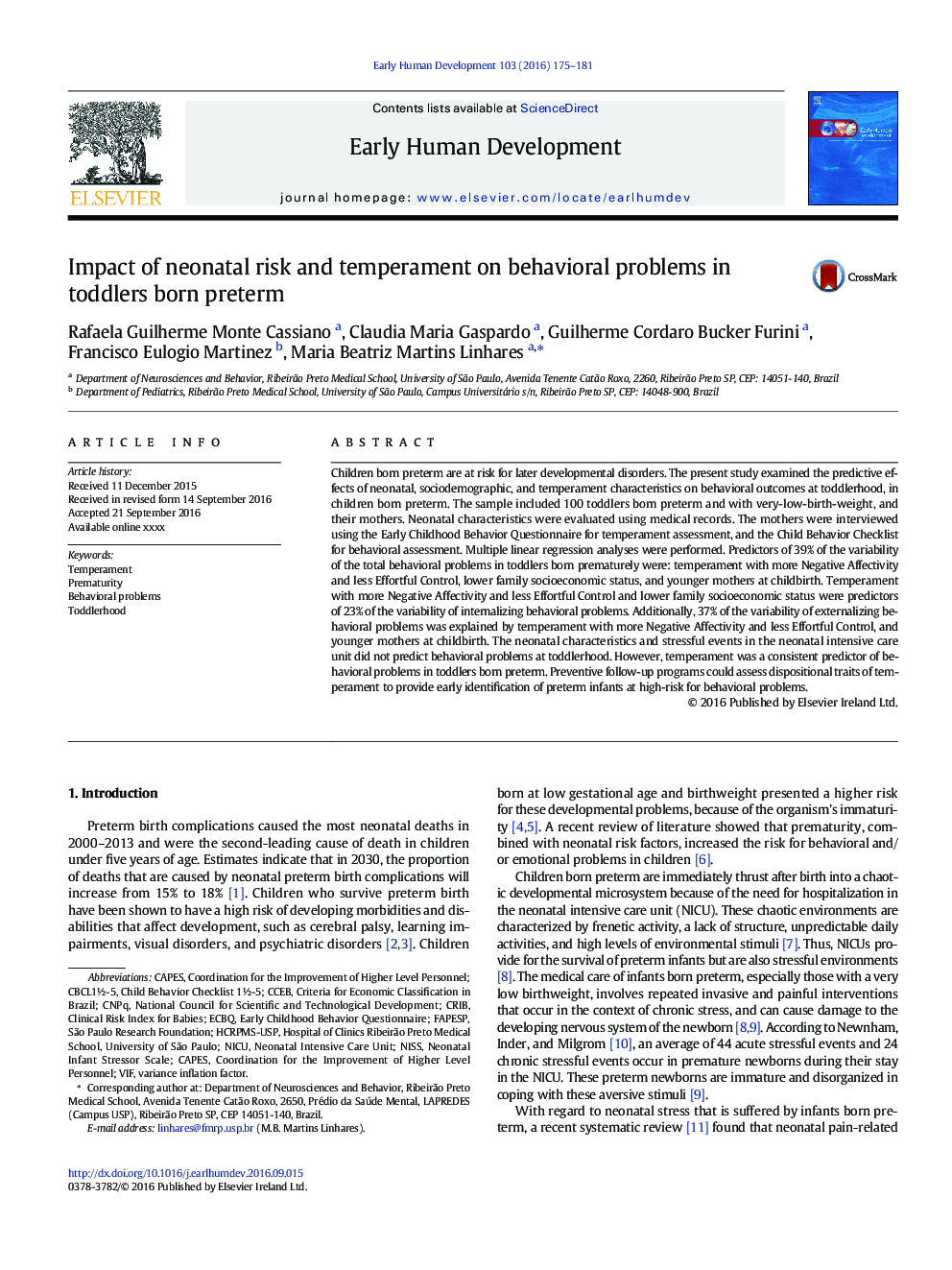| Article ID | Journal | Published Year | Pages | File Type |
|---|---|---|---|---|
| 8777772 | Early Human Development | 2016 | 7 Pages |
Abstract
Children born preterm are at risk for later developmental disorders. The present study examined the predictive effects of neonatal, sociodemographic, and temperament characteristics on behavioral outcomes at toddlerhood, in children born preterm. The sample included 100 toddlers born preterm and with very-low-birth-weight, and their mothers. Neonatal characteristics were evaluated using medical records. The mothers were interviewed using the Early Childhood Behavior Questionnaire for temperament assessment, and the Child Behavior Checklist for behavioral assessment. Multiple linear regression analyses were performed. Predictors of 39% of the variability of the total behavioral problems in toddlers born prematurely were: temperament with more Negative Affectivity and less Effortful Control, lower family socioeconomic status, and younger mothers at childbirth. Temperament with more Negative Affectivity and less Effortful Control and lower family socioeconomic status were predictors of 23% of the variability of internalizing behavioral problems. Additionally, 37% of the variability of externalizing behavioral problems was explained by temperament with more Negative Affectivity and less Effortful Control, and younger mothers at childbirth. The neonatal characteristics and stressful events in the neonatal intensive care unit did not predict behavioral problems at toddlerhood. However, temperament was a consistent predictor of behavioral problems in toddlers born preterm. Preventive follow-up programs could assess dispositional traits of temperament to provide early identification of preterm infants at high-risk for behavioral problems.
Keywords
Related Topics
Health Sciences
Medicine and Dentistry
Obstetrics, Gynecology and Women's Health
Authors
Rafaela Guilherme Monte Cassiano, Claudia Maria Gaspardo, Guilherme Cordaro Bucker Furini, Francisco Eulogio Martinez, Maria Beatriz Martins Linhares,
